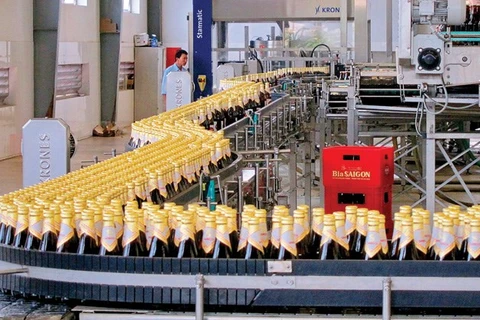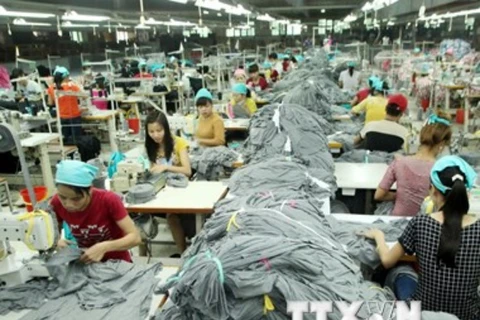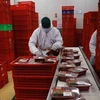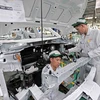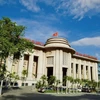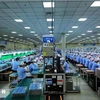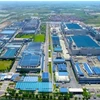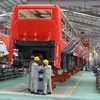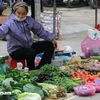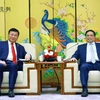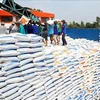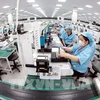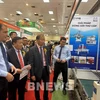Hanoi (VNA) – The participation in the Trans-Pacific Partnership (TPP) agreement will provide a chance for Vietnam to balance its trade relations and avoid over-dependence on certain markets, economists said at a recent seminar in Ho Chi Minh City.
Deputy Minister of Agriculture and Rural Development Tran Thanh Nam said the TPP will open up an immense export market for Vietnam with a number of its staple agricultural exports benefiting from low taxes.
Foreign investment accompanied by advanced technologies and skilled labour will fan production expansion and agricultural restructuring, he added.
Under the FTAs, stronger commitments to investment climate improvement and intellectual property protection will surely draw more foreign investors, particularly big groups, to Vietnam, economists added.
However, the TPP participation will also pose major challenges to the country’s agriculture when imported products will create strong competitive pressure on domestic goods, Deputy Minister Nam predicted.
He forecast more non-tariff barriers to be erected when tariff barriers are removed. As the TPP includes stringent regulations on copyright, labour, origin and the environment, industries with low competitiveness will suffer from losses at different levels.
While a majority of businesses shared the view that new FTAs will fuel growth, agriculture companies are concerned that it will be uneasy to make use of opportunities. It will need modern facilities, strict process and skilled labourers to ensure agricultural products’ quality throughout the production and distribution chains.
Tran Cong Thang, Deputy Director of the Institute for Policy and Strategy for Agriculture and Rural Development, urged the expeditious dissemination of FTAs’ content and information about their possible impacts on managerial agencies, enterprises, cooperatives and farmers. Vietnam must also build standard systems that meet the requirements of TPP members while preventing imported goods of inferior quality.
The country should enhance the trading of its strong farm products and join global value chains, he said, suggesting it design policies to buffer negative influences on vulnerable commodities.
At the function, other mid- and long-term measures were also proposed such as accelerating agricultural restructuring, reducing dependence on imported materials, fine-tuning the policy environment, and improving the capacity of applying sanitary and phytosanitary measures.-VNA



